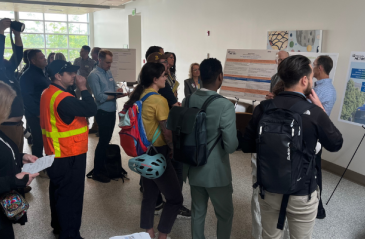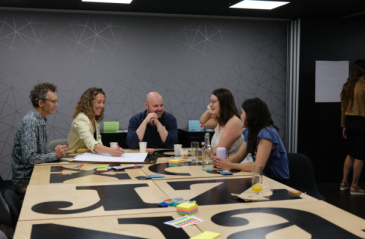
The information barriers holding back climate action and how to break them

The vast majority of decisions have no evidence associated with them at all
Share articleParents and policymakers both balance needs to achieve outcomes that are often hard to measure
Share articlePolicymakers should consider the best evidence, as well as professional experience
Share articleWe put our vision for government into practice through learning partner projects that align with our values and help reimagine government so that it works for everyone.
Like all new parents, my wife and I are keen to do everything we can to ensure that our new baby has the best possible start in life. And there is no shortage of advice. From the midwife to friends, grandparents and other family members, it seems that everyone has a point of view on parenting. Amazon alone has over 100,000 books on the topic. Almost all of this advice, though, is anecdotal and often dangerously clouded by the mists of time. What if we were to take an evidence-based approach to parenting?
A good start might be to adopt a far more rigorous approach to what we define as “evidence”. The gold standard is widely agreed to be the randomised controlled trial or RCT. By only considering results from RCTs, we can be confident that we have done everything possible to eliminate experimental biases and other forms of unreliable evidence. Given that it is generally considered unwise to rely on a single study, we might go further and aim to consider only results that have been repeated and, ideally, verified through some sort of meta-analysis or systematic review of multiple studies.
With this trusted data in our hands, we can confidently follow the best possible evidence for feeding, bathing, napping and generally ensuring the best possible cognitive and physical development for our child. This is evidence-based parenting.
Of course, it is also a complete fiction.
Firstly, it is thoroughly impractical. As any new parent knows, dressing yourself in the morning is an achievement when you have a screaming baby, so finding the time to scan the latest global research on parenting is not a very realistic proposition. Secondly, even if the best evidence were immediately to hand, it would be disappointingly limited. The vast majority of decisions (to burp or not to burp) have no evidence associated with them at all, and those that do are often based on extremely limited data, collected in entirely different circumstances, in another part of the world, several decades ago.
With a new-born, thinking on your feet, a willingness to learn and a good sense of humour are all far more important than hard “evidence”. This is why grandparents and midwives turn out to be so important - even if their advice and support is based on experience or professional judgment rather than RCTs.
Replace the word “parenting” with “policymaking” above and you have a good approximation to one view of the world about the role of evidence in policy. It turns out that parents and policymakers have a lot in common, including a demanding environment where they are expected to make rapid decisions, balancing a range of needs and interests to achieve a set of outcomes that are often hard to precisely measure.
At CPI, we've spent the last few months closely examining the role of evidence in policy and we're calling for a more balanced approach. There's no doubt that policymakers should consider the best available evidence, but this must go beyond hard RCTs to place a greater emphasis on professional judgment and experience as well as the real-world data and insights being generated by public services every day.
And failing that there's always Peppa Pig.











